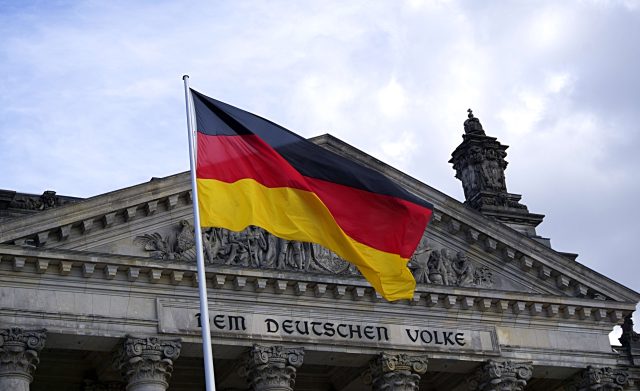
Although it seemed to have weathered the pandemic well, the European economy is starting to show signs of fatigue. The delayed effects of the Covid pandemic, coupled with those of the war in Ukraine, have hit Europe’s best-performing economy, Germany, hard.
The post-pandemic recovery of German companies – like that of many European firms – is threatened, despite substantial state support – by high interest rates on loans and rising energy prices amid increased general inflationary pressure. Germany’s entry into technical recession is raising concerns not only in Berlin but among economic analysts across Europe. Will Germany become the ‘sick man of Europe’? This phrase, associated with Germany by the British publication The Economist in the context of concerns about the new federal state’s accession to the eurozone, has reappeared this year in the discourse of German financial analysts. The bankruptcy of German companies more than 100 years old at the end of last year and recently announced restructurings at the symbols of German industry – Volkswagen, Michelin and Bosch – confirm the gloomiest forecasts.
Germany’s economy will tighten
With the economy expected to shrink by 0.3% in 2023, the International Monetary Fund expects Germany to be the only advanced economy to contract.
The federal state’s economy recorded its second consecutive decline in the first part of last year, shrinking 0.3% in the first quarter of 2023 from the previous quarter, after falling 0.5% in the fourth quarter of 2022. The technical recession is not a surprise, but the high level of this decline is worrying.
For Germany, this is a first after the pandemic crisis period, when the economy shrank in the first two quarters of 2020, and also surprising given that it has been one of the best performing economies since the financial crisis that hit the world in 2008-2009, when it grew at an average annual rate of 2%. Recent developments in Germany’s economy have been driven by a fall in demand amid rising inflation and interest rates. According to some German analysts, Germany’s current economic problems stem from a combination of reasons, some temporary, others structural.
German industry hit by energy crisis
German industry, dependent on cheap gas supplies from Russia, was hit hard by the energy crisis that followed the outbreak of war in Ukraine.
Although the federal government has taken a number of measures – it has sourced liquefied gas, granted massive state aid, and the price of natural gas has fallen since autumn 2022 – the problems have not been solved. The federal government has allocated billions of euros to cushion the negative effects of the energy crisis on companies and citizens, but these measures have created a shortfall of €42 billion in the German budget, equivalent to about 2.1% of the country’s GDP.
Dependence on exports to China – which has also been affected by the pandemic – is another vulnerability, which in the short term has an impact on the German economy. On the other hand, in the absence of substantial technical innovation, German brands are struggling to keep up with the “steamroller” of cheaper Chinese imports into Europe. All these temporary problems have been superimposed on structural challenges such as the ageing German population and high corporate tax rates. Amid general inflation, consumer prices in Germany rose by 6.2% in the middle of last year, well above the eurozone average of 5.3%, significantly affecting people’s purchasing power.

The European Central Bank’s decision to raise the benchmark interest rate to 3.75% to combat rising prices has had knock-on effects on the economy across Europe. In Germany, the residential construction sector saw a substantial decline – with over 40% of construction companies reporting a lack of orders, and the industrial sector was also lower, recording a 1.7% year-on-year decline.
Deutsche Bank CEO Christian Sewing warned back in August last year that Germany would become the sick man of Europe if “structural problems” were not addressed immediately.
“We are not yet the sick man of Europe, but it is also true that there are structural weaknesses that are holding our economy back and preventing it from developing its great potential,” says Christian Sewing.
A long-awaited measure for German industry
Environmentalist deputy prime minister Robert Habeck, minister for economy and climate, has been trying for months to push through a state-backed reduction in high electricity prices, which he says would support the energy-intensive industry in its green transformation over the coming years. Liberals oppose the measure as costly, and the Chamber of Commerce and Industry has also expressed reservations about a subsidised electricity price.
A recent decision by the country’s Constitutional Court, cancelling the transfer of €60 billion in unused appropriations – mainly from the pandemic – to a fund dedicated to green investment and support for industry, blocks this initiative. Moreover, it has delayed the adoption of the federal budget, fuelling the economic crisis. In order to take part in the budget negotiations in Berlin, Habeck cancelled his participation in the UN climate conference (COP28) in Dubai. Habeck has yet to reach an agreement with his main challenger, finance portfolio holder Christian Lindner, a Liberal Democrat. The two had to reach a compromise solution as soon as possible so that the federal budget for 2024 could be adopted by the end of December last year.
Meanwhile, to cope with the energy crisis, German companies are announcing plans to cut jobs. Like many European carmakers, the German group is failing to get on board the electromobility trend, slowly adapting to it at great expense. German car giant Volkswagen has told its employees it will have to cut staff because it is uncompetitive. VW has also been criticised for failing to make rapid progress on software and implementing demands now in vogue from drivers, such as a digital multifunction steering wheel.
The “lack of competitiveness” of German operations for European and export markets was cited by French tyre manufacturer Michelin when it recently announced the closure of three plants in Germany. Production in Karlsruhe, Trier and Homburg will be shut down in a process that will last until 2025. Things aren’t looking good for Bosch, which is also struggling with innovation. Faced with a lack of exports, it has announced it will move its customer service centre to Poland.
At the end of last year, companies more than 100 years old announced their bankruptcy. Soap maker Kappus, Germany’s oldest company, which had been in business for 170 years, filed for insolvency. Other firms, in industries ranging from food to construction to automotive, have also pulled the plug, citing rising operating costs. Among them are confectionery maker Bodet, Borgers – a supplier to the automotive industry and construction company Wolff Hoch-und Ingenieurbau. These are problems that many German brands have, including Bosch. Made in Germany is no longer synonymous with innovation and quality. For German firms that rely on exports, this puts them at a disadvantage in the face of the export boom of Chinese brands and will affect at least 1,500 jobs, Reuters notes. Bosch’s customer service centre will be moved to Poland.
But it’s not just industry that’s showing signs of “sickness” in Germany. In the fashion sector, bankruptcies are on the rise and thousands of restaurants fear they will have to close their doors. After businesses in this sector were protected during the pandemic by tax breaks and tax cuts, the costs to the owners of these firms have now risen, reflected in higher finished prices. And this is reflected in customer satisfaction. If the government returns taxes to pre-pandemic levels, some 12,000 businesses could close, warns a restaurant and hotel association.



 Subscribe
Subscribe